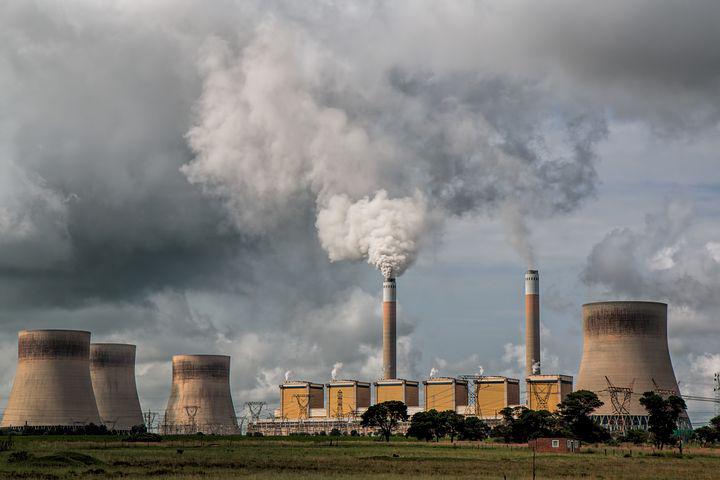15 Highest Paying Jobs In Energy Industry | Career In Energy Sector. The energy industry is a growing and exciting sector to work in. It’s also an industry that attracts many highly skilled workers. If you’re looking for a job in this field, here are the highest paying jobs currently being offered.

These jobs range from well-known roles such as air traffic controllers and nuclear engineers to more specialized careers such as hydrologists and hydrogeologists (who are responsible for studying the movement of water). As you can see there’s quite an array of exciting positions within energy industries around the world!
15 Highest Paying Jobs In Energy Industry
The following below are the 15 Highest Paying Jobs In Energy Industry:-
Petroleum Engineer
Petroleum engineers work in the oil and gas industry and are responsible for finding new oil and gas reserves. They also design and supervise drilling operations, manage the production of oil and gas, ensure safety of their employees as well as protect the environment.
Petroleum engineers work with geologists to locate new sources of fuel by identifying areas that have potential to yield large amounts of crude oil or natural gas. Petroleum engineers use a variety of techniques such as seismic surveys (using sound waves) or core samples (drilling into an underground reservoir) to search for these resources.
Once they have identified promising prospects, petroleum engineers then design drilling operations that will extract them from below ground safely while minimizing environmental damage.
Geophysical Data Technician
Geophysical data technicians collect and analyze data to determine the location, extent, and nature of geologic features. They use computers to process information from airborne or spaceborne instruments that measure global topography; gravity; magnetic fields; electromagnetic radiation at specific frequencies (microwave, infrared); seismic waves generated by earthquakes or explosions; electrical currents in ocean floors; and other phenomena.
The data are used for scientific research and exploration as well as for engineering applications such as locating mineral deposits or potential hydroelectric sites.
Geophysical data technicians also conduct field surveys using high-precision measuring equipment to take readings from the ground or water surface. They may also compile maps showing surface variations caused by natural occurrences such as earthquakes or mineral deposits in underground formations.
Power Plant Operator
This is one of the highest paying jobs in energy, with an average salary of $80,000. It requires a high school diploma and licensing, including passing an exam that tests your knowledge of nuclear reactor operation. You could work for oil and gas companies or for electric utilities (power plants).
The job involves monitoring instruments that measure temperatures and pressures within reactors, as well as maintaining them so they operate safely at all times. If there is an emergency situation that requires shutting down the plant, then you would be responsible for making sure everyone leaves safely before being evacuated yourself.
Nuclear Technician
Nuclear technicians are skilled workers who are responsible for the operation and maintenance of nuclear power plants. They can also be known as a nuclear power plant operator, or simply a nuclear energy specialist. Their job is to ensure that the facility is operating safely at all times.
Nuclear technicians work under close supervision by other trained professionals such as physicists and engineers. Because of this, they do not have much decision-making authority on their own but they are still expected to take initiative whenever needed in order to ensure everything goes smoothly during operation hours.
Industrial Production Managers
Industrial production managers are responsible for managing the manufacturing process and ensuring that it runs smoothly. They also contribute to the profitability of their organization by being able to identify problems, make adjustments, and improve efficiency.
Industrial production managers earn a median salary of $93,000 per year and have a job outlook of 8%. To become an industrial production manager you need a bachelor’s degree in engineering or business administration with a concentration in manufacturing management or engineering. Skills required include:
- Organizational skills
- Problem-solving abilities
- Analytical thinking
Electrical Engineers
Electrical engineers are the backbone of the energy industry, and electrical engineers are responsible for the design, construction and maintenance of the electrical systems that power the world. Electrical engineers have a strong influence on how we all live our lives, from powering homes to designing power grids and other systems that allow us to communicate with one another.
While not all jobs in this field require advanced degrees, many do—and if you do go back to school for an advanced degree (or at least several years of experience), you may find yourself earning six figures within just a few years.
Wind Energy Project Manager
A Wind Energy Project Manager is responsible for managing a wind energy project, including developing the project and working with contractors, people in the community, government officials and investors. The job duties of a Wind Energy Project Manager include:
- Developing and implementing a plan for completing tasks related to your project.
- Managing relationships with contractors, community members, government officials and investors.
- Tracking progress on each task that needs to be completed before construction can begin or continue on schedule.
Construction Manager
You think you’re ready to tackle the world of energy? You might be, but before you jump in with both feet, it’s important that you know what your job will entail. Here are some of the most important things to consider when looking at jobs in this field:
- What will I do? Construction managers work with their team to oversee and manage projects from beginning to end. They ensure that the project is completed on time and on budget while staying within legal guidelines, environmental regulations and company standards. They also act as liaisons between contractors and clients or owners of properties being developed or refurbished.
- What kind of training do I need? A bachelor’s degree in construction management from an accredited university is generally considered essential for entry-level positions as well as for advancement opportunities later down the line (though some employers may prefer candidates who already have a master’s degree). Courses should include fundamental concepts such as cost estimating; basic principles of construction materials technology; principles of structural design; site supervision; managing public works projects; safety procedures; scheduling techniques for large-scale projects like highways or bridges; bidding methods used by private companies when contracting out services such as landscaping jobs–and much more!
- How much will I make? According to Indeed data compiled by 24/7 Wall St., average annual wages across all industries were $60K per year in 2016–but don’t expect those numbers if working outdoors every day under harsh conditions without air conditioning.
Environmental Engineer
Environmental engineers are involved in the protection of the environment. They work in offices and in the field, and they can be found working in a variety of industries.
Some environmental engineers may specialize on one aspect, such as air pollution or waste management, while others might cover more broad fields like hazardous waste management or water resources engineering.
Environmental engineers usually work on large projects such as cleaning up oil spills or building new water treatment plants. They often collaborate with other professionals to make sure that their projects are successful and meet regulations set by local governments.
Environmental engineers also have to deal with public perception when presenting information about their work to people who might not understand it fully.
Solar Photovoltaic Installer
Solar photovoltaic installers are responsible for installing solar panels on roofs and other structures. The job requires knowledge of electrical systems and circuits, as well as the ability to read blueprints, assembly instructions and wiring diagrams. You also need to be able to understand customer concerns about how the installation will affect their home. Some of your daily duties include:
- Interviewing customers about their energy needs
- Working with electricians, engineers and salespeople
- Consulting with insurance people, lawyers, bankers and government officials if needed
Nuclear Engineer
Nuclear engineers may seem like a strange career choice, but there are actually many benefits to working in this field. For example, nuclear engineers can expect to earn an annual salary of $81,740-$121,370. Additionally, you may be eligible for overtime pay and bonuses depending on the type of work that you do or your level within the company.
Another benefit is that many employers provide health insurance coverage as part of their employee benefits package. In some cases they also offer dental insurance coverage as well as life insurance coverage with optional term periods ranging from 10 years to 30 years depending on how long they want their employees covered by these policies before they stop paying premiums each month while still receiving benefits when needed most during times such as childbirth or illness when it could become difficult financially if something wasn’t taken care off quickly enough without having any kind of financial assistance at all
Occupational Health & Safety Specialist/Technician
Occupational health and safety technicians or specialists are responsible for performing tasks that ensure worker safety. The duties of an occupational health and safety technician include:
- Conducting workplace inspections to identify potential hazards and areas of improvement, such as ergonomics, chemical exposure, slips/trips/falls and electrical shock
- Developing procedures to prevent workplace accidents
- Training workers in accident prevention techniques
Additionally, occupational health and safety technicians may also be called upon to perform tasks such as conducting preliminary research on injuries or illnesses suffered by employees so that more comprehensive investigations can be conducted later on.
This type of work is most often carried out by professionals who have at least a bachelor’s degree in occupational health technology or another related field; however, some employers may hire entry-level workers with only high school diplomas if they possess strong technical skills.
Mechanical Engineer
Mechanical engineers design and develop mechanical devices, such as industrial machinery and tools. They usually inspect the machines that they design to make sure they meet the necessary requirements.
Mechanical engineers are highly trained professionals who are needed for many different industries. These professionals are in high demand, especially during the energy boom of recent years, and their salaries reflect this fact.
Air Traffic Controller
Air traffic controllers are responsible for the safe and efficient movement of aircraft in the air. They work in one of three areas: en route, terminal or tower. At each level, their responsibilities include controlling aircraft operations by communicating directly with pilots and handling emergencies that arise during flight.
Air traffic controllers are employed by the Federal Aviation Administration (FAA), which was established in 1958 as a branch of the Department of Transportation after having been under military control since its inception during World War II.
Air traffic controllers work at an FAA facility on a 24-hour basis, including nights, weekends and holidays; this schedule may not be compatible with other jobs or lifestyles if you want to have children or get married someday but it can be rewarding if you’re willing to make sacrifices now so that you don’t regret certain choices later on!
Hydrologist/Hydrogeologist
A hydrologist/hydrogeologist studies the movement of water on, in, and above the Earth’s surface. Hydrologists and hydrogeologists work in a variety of fields from environmental engineering to geology to water resource management. They may study the effects of human activity on water resources and investigate pollution problems.
Hydrologists develop models that predict the flow of water on earth’s surface based on topography, climate conditions, soil type, vegetation cover and other factors. Their analyses help inform public policy decisions about managing fresh water resources such as reservoirs and rivers for flood control or irrigation purposes.
Work in the energy sector is more than just good pay
As a journalist, you’re probably already aware that the energy sector is one of the best places to work in. The abundant employment opportunities and high pay that comes with working in this field are just two of the many benefits you can expect. It’s also important to note that there are other perks associated with working in the energy industry such as:
- Working outdoors
- Getting to see some amazing sights
- Meeting new people
Conclusion
There is light at the end of the tunnel. But what are we to do about all this? We can start by realizing that there is no such thing as a “choice” when it comes to what career we want for ourselves and our children. Every single one of us will have some kind of job in order. 15 Highest Paying Jobs In Energy Industry




